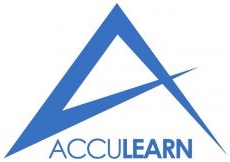Course Overview:
This HR management course weaves together solid human resource principles, timely research and recent events, such as the latest rise in unemployment and financial problems facing the U.S. and other countries.
This course highlights important challenges facing managers and employees in today’s business climate. Interesting case studies explore real companies and organizations in-depth and delve into some of today’s most effective, unique approaches in dealing with HR issues. In addition, this course provides study materials to help prepare for the PHR ® Exam.
The PHR ® Exam Study Guide will be utilized throughout the course to supplement the Human Resource Management textbook and provide review materials for exam prep. Upon completion of this course, participants will have the skills necessary to serve as Human Resource Managers, as well as the preparation needed to sit for the PHR ® exam.
Course Objectives:
In this PHR Prep training course , the participants will:
- Define Human Resource Management (HRM) and each of its major functions and processes.
- Identify the aspects of strategic HR planning, including environmental scanning, labor market analysis and forecasting, internal analysis and forecasting, gap analysis, HR plan and strategy development, and HR strategy and implementation.
- Conduct a job analysis and write a job description and specifications that are conducive to recruitment, selection, training, evaluation, and compensation.
- Identify sources for attracting and recruiting talent, internal and external applicant sources, laws pertaining to recruitment, and recruitment strategies.
- Students will describe and evaluate employee selection tools, laws and regulations governing selection, and the benefits and risks of effective and ineffective selection.
- Students will define and identify the dimensions of work performance using a holistic approach, list the outcomes of effective appraisal, and describe commonly used appraisal method.
- Define the terms “training” and “development”, describe a systematic approach to the training and development including its features, list and describe various forms of training, and identify factors and decisions that should be considered in creating and implementing training.
- Apply motivation theories, structures and types of pay, and HR laws to design a pay and reward system.
- List and describe types of benefits that organizations offer.
- Identify laws and policies that directly relate to equal opportunity, diversity, and the role of unions.
The Contents:
HR’s Roles, Strategy, and Planning
This session will provide an introduction to Human Resource management, and the various roles of the HR professional. In addition, this session will explore aspects of strategic HR planning, including environmental scanning, labor market analysis and forecasting, internal analysis and forecasting, gap analysis, HR plan and strategy development, and HR strategy and implementation.
Equal Employment and Discrimination
This session will provide an overview of equal employment and discrimination issues. In addition to an overview of the primary issues related to equal employment and discrimination, this session will discuss legal considerations, health and safety, diversity, demographics, and globalization.
Workforce, Jobs, and Retention
This session will discuss job analysis and job design and how they are used to allow an HR Manager to design positions and tasks, recruit, compensate and evaluate, and supervise.
Staffing: Recruiting and Selection
This session we will explore a variety of recruitment sources, discuss the importance of effective recruitment, and link recruitment to strategic HRM. Additional topics include effective employee selection, employee selection tools and their validity and reliability, legal issues in employee selection, and trends, opportunities, and challenges in employee selection.
Training, Talent Management, and Career Development
This session will explore the concepts of training and development, HRM approaches to training and development, and the various forms of training and development.
Performance Management and Appraisal
This session will discuss the use of a holistic approach to defining and assessing work performance as well as the outcomes, trends, and methods of performance evaluations.
Total Rewards and Compensation
This session will discuss pay and benefits as critical factors in the attraction, motivation, and retention of talent. Specifically, this topic will discuss several psychological principles at work in the motivational role of pay and rewards, including Content Perspectives, process and equity perspectives, and behavioral perspectives.
This session will also discuss the most frequently used types of pay, including hourly pay, piece-rate pay, competency-based pay, outcome-based incentives, salaries and exempt positions, team-based pay, independent contractors, and executive pay.
Variable Pay, Executive Compensation, and Benefits
This session will explore the types of benefits organizations may offer, the legal issues and policies impacting the provision of benefits, and how benefits impact the pay/benefits package.
Risk Management, Worker Protection, and Employee Relations
This session will provide a comprehensive overview of risk management, worker protection, and employee relations. In addition to a discussion of health, safety and security, individuals will learn about disaster preparation, recovery planning, and employee discipline.
Union/Management Relations and Grievances
In this session, participants will learn about union/management relations and grievances. Labor laws and the unionization process will be discussed. In addition, this session will provide an overview of collective bargaining issues and the collective bargaining process. Upon completion of this session, individuals will be prepared to perform union-related human resource functions.



